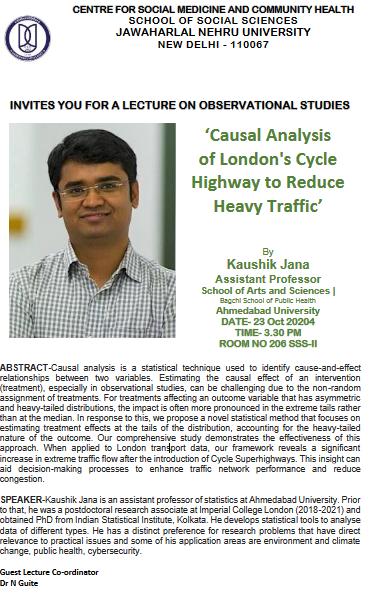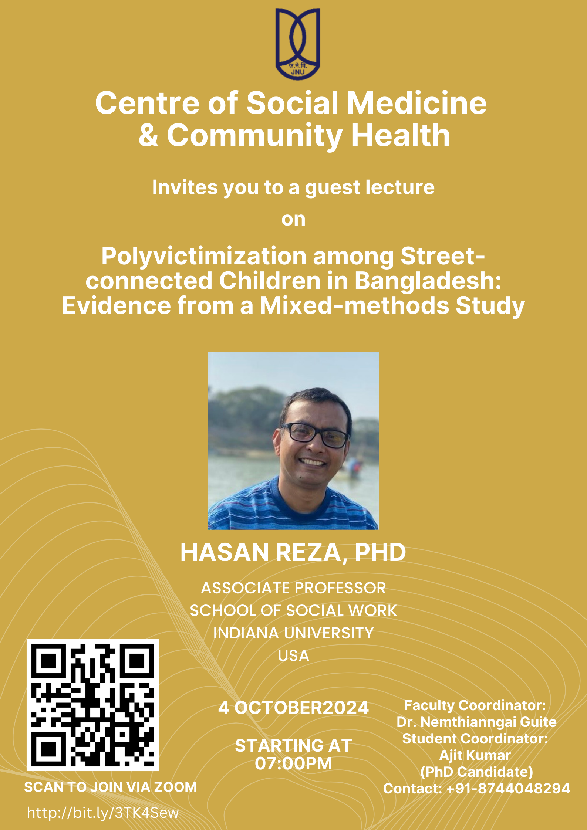Skip to main content


The Centre of Social Medicine and Community Health at Jawaharlal Nehru University, was started in 1971 with the mandate of evolving the contours of the discipline as suited to the Indian context with all its diversity, and with special attention to the vulnerable sections. The experience of developing its theoretical base and curriculum for the various teaching and research programmes offered by the Centre have served well over generations of students and faculty. Many more institutions have initiated Public Health programmes and research, contributing immensely to the development of the discipline and its practice. Collaborations with many of them have enriched our own work.
As a culmination to the yearlong celebrations of our golden jubilee, the Centre is hosting the following:
Date: 13th July 2024
Time: 10.30 am
A Webinar Series on 'Inter-disciplinary Public Health in the 21st Century: Bridging Science and Social Science Dimensions
Webinar I: Defining the Contours of Public Health
[Organised in collaboration with the Centre for Community Medicine, All India Institute of Medical Sciences, New Delhi]
Date: 19th July 2024
Time: 5 pm
Webinar 2: Epidemiology and the Social Sciences: 26th July 2024
[Organised in collaboration with the National Institute of Epidemiology, Indian Council of Medical Research]
Date: 26th July 2024
Time: 5.30 pm
Organising Committee (CSMCH/JNU):
Prof. Ritu Priya, Prof. Rama Baru, Prof. Rajib Dasgupta, Prof. Ramila Bisht, Dr. Prachin Ghodajkar



